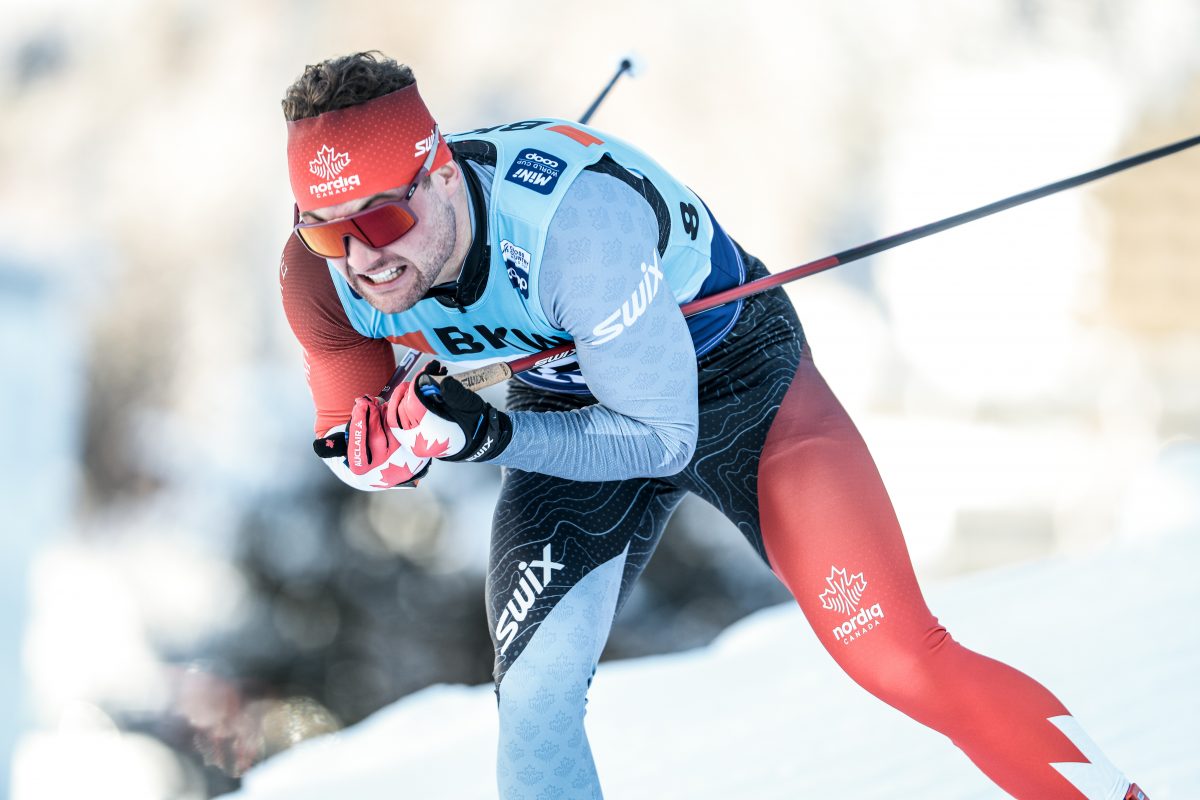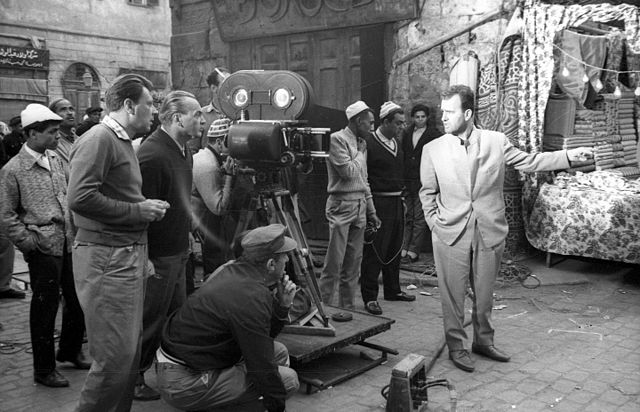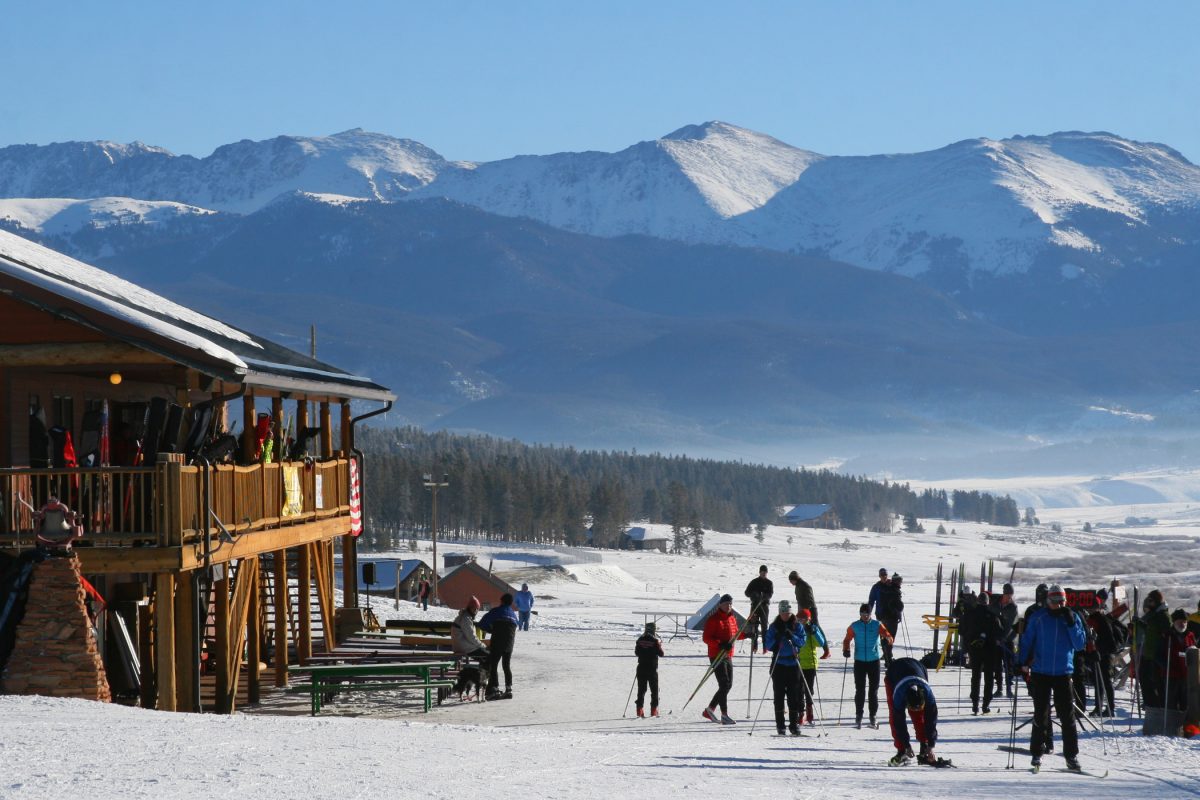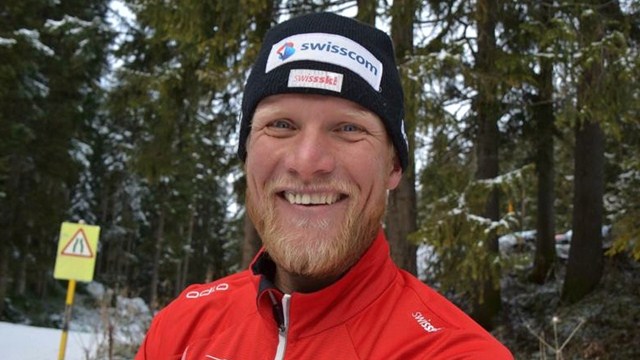
Tor-Arne Hetland can now add Canada to his list of homes-away-from-home after wrapping up his first training camp with the World Cup team at the Sunshine Village ski area in Banff, about 45 minutes northwest of Canmore, Alberta.
Yes, he’s Norwegian — and a gold-medal Olympian at that (in the individual sprint at the 2002 Salt Lake Games). He also won silver in the 2006 Olympics classic team sprint and tallied five World Championships medals (three golds, a silver and a bronze) before retiring as a result of a knee injury and asthma in 2009.
That year, he started coaching for Germany. The next season in 2010, he became a sprint coach for the Swiss World Cup team.
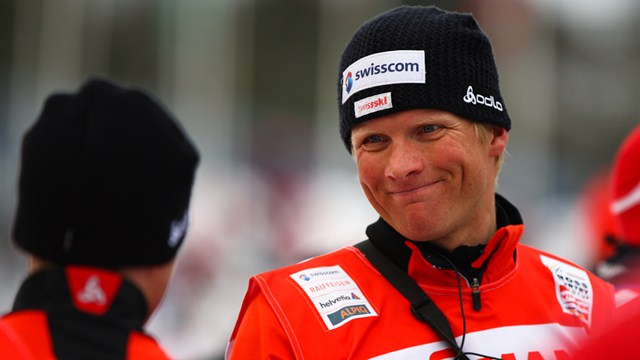
His contract with Switzerland could have been terminated at any time, he said, and he would’ve been gone in three months. Yet he worked side-by-side with his wife, Guri Hetland, head coach of the Swiss team, for four years until both ended their contracts with the Swiss-Ski Association this spring.
Meanwhile, Tor-Arne had something in the works with Canada, ultimately agreeing to a one-year contract as World Cup coach. He started in earnest in mid-April and once March 31, 2015 rolls around, he predicted he’ll likely sign on for another year or more.
“If things are working well I am very open-minded to keep on the work,” Hetland said on the phone in mid-May from Sunshine Village, where the Canadians held their first on-snow camp of the 2014/2015 season.
Between training sessions, he talked about his first few weeks with the team and what he had observed so far. The approximately 10-day camp wrapped up on May 20, at which point Hetland headed home to Davos, Switzerland, to see his wife before returning to North America in June for the team’s annual camp in Bend, Ore., later this month.
Here’s what he had to say about first impressions:
FasterSkier: How has it been going — getting to know the team?
Tor Arne Hetland: It has been very interesting. [National-team head coach] Justin [Wadsworth] and I … we’ve been sharing information and training philosophy. We’re starting to get a plan. It’s good, the athletes are very motivated for the training and ready to do the work that they have to do to be on the top. They are also training with the younger athletes and the development team and it’s good to see the whole team starting to train.
FS: Out of the four men on the World Cup team, who was there?
TAH: Alex [Harvey] is doing his courses on the school, so he is not here, but Ivan [Babikov], Len [Valjas], Devon [Kershaw] – there are like 20 [athletes] on the mountain and also the biathletes are also training up here and [Para Nordic] athletes so it’s the best skiing in the world … I have been skiing in a lot of places and it is not possible to get it better.
FS: Have you spent much time in Canmore before?
TAH: As athlete and also as trainer so I know the nordic center, but now I have tried some of the trails for running and it’s good, very good training there.
“I think it is possible to be the best skier in the world while living in Canmore.” — Tor-Arne Hetland, Canadian World Cup Coach
FS: When were you last home in Davos?
TAH: After Easter I was going home because I had my tests on the trainer-education program in Switzerland, so I had to do the test and do some waiting and doing some work. Now I am done with … the highest education you can get as a coach in Switzerland so that was two years with working on this one, so that’s cool (laughs).
FS: How’s it going back and forth from Europe?
TAH: It’s eight hours [time difference], but I’m getting better and better with it, and I’m taking one day extra in front of training camp so that I’m ready to coach the athletes … I’ve been prepared to go to training camp before I leave Europe so then I can adapt a little bit for the time difference.
FS: Is it hard being apart from your wife?
TAH: We are thinking about the life. That is fine. We have been working very close the last years and it would be good to be working a little bit on different things now and having a little bit difference. We are used to this from when I was athlete so we will spend more quality time together when we are together. I think it will be good for both of us.
FS: Has it been hard dealing with the media attention on both sides, from your hire to her leaving the Swiss team?
TAH: Nah, not at all. I’m used to it, to be in the news that three days and then it’s over. That’s no problem.
FS: What about Guri?
TAH: Nah, it’s a little bit strange that Switzerland had those results, the best ever the last four years [and then to not have her contract renewed]. The team has been very strong and done steps in the right direction and not going on with the same program, but it’s good with some changes and go on in life. The politics in Switzerland, you have to discuss with other people than me.
FS: So what training camps are coming up this summer — I heard you might be taking the Canadians to Europe in July?
TAH: We are discussing. New Zealand is on the calendar, and that’s the Plan A, but there is the invitation to go to Europe also, so the final call of this one we haven’t [made] … we have New Zealand on the plan in August.
FS: And Park City in October and Bend in June/July, right?
TAH: Yep.
FS: Will you be at all of the training camps?
TAH: I will go to all the training camps and then also the whole World Cup season, maybe taking one weekend off in the World Cup. That’s maybe the biggest change for the athletes that they will have a coach in Europe now, so it will be easier for Justin and for Louis [Bouchard] also. Base camp will be in Central Europe — Davos … so that would be easier for me to cover.
FS: Does that mean your athletes are going to be staying at your place?
TAH: (Laughs) No. We will rent a flat or find a hotel for the athletes.
FS: Did you go to all the World Cup races last year?
TAH: I think I did everything. Maybe the last part of Tour de Ski I didn’t do it. Also not in Lillehammer. That’s what it normally is for me.
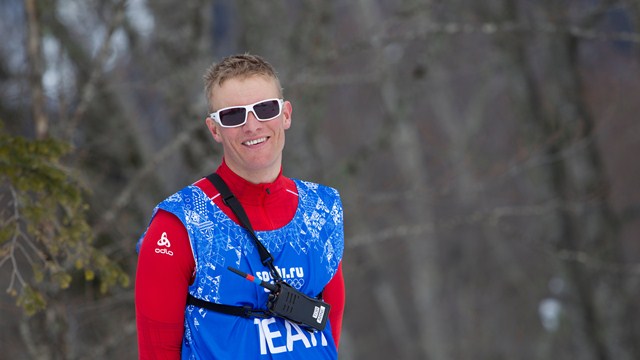
FS: How many athletes were you responsible for?
TAH: In sprinting, it was seven total [athletes].
FS: So this team is a little smaller.
TAH: Yep. That’s good.
FS: What have you noticed about your athletes so far? Anything specific you’re working on?
TAH: I have seen them and I have also told them what I am seeing, and we will would work together and improve it, and then we would take step by step to try to see how far it’s possible to go.
FS: How much potential do you see in veterans like Ivan and Devon, guys who have hinted at retirement in the coming years?
TAH: I would not put money that Ivan and Devon will not ski in the next Olympics. I think they have the best years in front of them because, like 31, 32, that’s starting to have a lot of experience, and if you are motivated for the training — and the guys are really motivated for the training — then I think they will improve and also can have very good years the next four years.
FS: Are you showing them anything they haven’t seen or heard before?
TAH: Maybe not heard before, but maybe I’m telling it in other ways or it comes out a little bit different so that can be a positive thing or a negative thing. So I try to find out how does this spoken here, and try to bring my ideas of training and coaching.
FS: How different are the Canadian and Swiss systems, for instance?
TAH: Some different. It is going on how much you are training and that’s quite equal with other countries. We have everything we need here in Canada, but it’s different and I try to learn this system, and I tried to get them a little bit more knowledge, but we have what we need.
FS: As a sprinter, how is it coaching distance or more all-around skiers?
TAH: As athlete I was trying to be all-around skier, and one of four men’s athletes that had been winning sprint, classic and skating, and distance skating and classic, so my goal the whole time was to also be good in distance skiing. In the last years, we had been working together, Guri and me, with the distance and sprinters in Switzerland so I’m well-known with distance skiing also. And, finally a lot of this is going over, with sprint and distance, their aerobic capacity and the possibility to be moving very, very fast at the end of races and that’s the thing in distance and in sprint. And then we have to do the good qualities from each athlete, improving this so the athletes can be even better the next years.
FS: Why did this opportunity coaching for Canada appeal to you?
TAH: For me the motivation is to work with motivated athletes and a motivated team [that] really, really want to be the best, and I am motivated to give my knowledge away and try to be a part of this team and bring Cross Country Canada on a new level.
FS: Why do you think Canada wanted you?
TAH: (Laughs) You have to ask somebody else, but I think they have seen me around in more than one year in the World Cup circuit and I think they saw some of my qualities and they wanted to put this together with the team.
FS: What about a new perspective?
TAH: It is asked for new ideas into the team and I’m ready to give this, and also more stability in the World Cup. That’s the main thing and the ideas.
FS: Did you explore this possibility because you knew you weren’t going to continue with the Swiss team?
TAH: I don’t know when we had the first contact, but it went out that it was possible to finish the work in Switzerland and then start in Canada, so it’s worked very well with the work situation for the moment.
FS: Were you ready for a change?
TAH: Yes.
FS: How would you describe your time with the Swiss team and working with your wife?
TAH: It was good years and interesting years. I learned a lot of new things and also got more experience as a coach because I was going directly from athlete to coach. Those years I have been learning a lot and I think that’s important. It’s not 100-percent sure, but an athlete can be a good coach … You have a lot of experience from your racing time that is very important, you know what where training is going over and you know of the feelings from the athletes. And you get this together from the work experience that’s something that brings you to a new level.
FS: Do you have any emotions tied to how things ended with the Swiss team and the direction they’ve chosen to go?
TAH: Nah. No emotions over this. We have a contract and the contract is clear that it can be stopped in three months, so that’s okay for me. For sure I would like to keep the contact with the athletes that want my helping in Switzerland, that are giving me a question or asking me for advice I will surely help them, and also they are a part of my life and that’s cool to keep a little bit of contact with them. But doing coaching work on the side with the swiss team — I will not do that (laughs).
FS: So now you’re the point person for the World Cup team while they’re racing in Europe, right? Will Louis Bouchard retain his role as an assistant coach?
TAH: Louis will be for sure in mostly of the World Cups also, so they will be covered with two coaches. And Justin will come to the first World Cup up in Finland so that the team is good, everybody knows what they have to do and so on. Justin will also be in Tour de Ski last part and also in the World Championships. I’m a little bit unsure when Louis will be here, but he will be for sure in something like the last years, and that’s good.
FS: Who is writing the training plans for the Canmore-based World Cup skiers?
TAH: [Justin and I] are doing this together and also with the sports psychologist in Canmore. And we end up doing this together to make a year plan and Justin will run the training from training camp to training camp and I will plan the main things in training camp together with … Justin. And then we will see how it’s working out and the needs of each racers.
“If you are trying to do everything then it’s too much.”
FS: Last question: how has the sport changed since when you were racing?
TAH: First of all, from all the mass-start races, you have to have a good finish. If it’s the last three kilometers or the last 300 meters you have to be even more practical. The speed is higher and that demands something different in the training. Also the work with the skis, it’s even more professional for each year, and to have good enough racing equipment is maybe the main part. It was important earlier, but now that every country is running their own program they are getting better and better each year. I think the Canadian team is good in this and what I have seen the Canadian team from outside they had very good skis. That’s maybe the three main points. … Finally it has come down to the athletes.
FS: Really the last question: what are your thoughts on the race formats?
TAH: It’s good in the Tour de Ski, but I can also see that it’s a question which races you are peaking to and say that’s my race, that’s the race that I want to win each year, because it’s not so many that can be fast from Kuusamo until Holmenkollen. So it’s very important to have individual race plans where we are saying that’s your goal, that’s your goal, because if you are trying to do everything then it’s too much. That’s also in the World Championships in Falun — you have to pick the right distance for each athlete.
Alex Kochon
Alex Kochon (alexkochon@gmail.com) is a former FasterSkier editor and roving reporter who never really lost touch with the nordic scene. A freelance writer, editor, and outdoor-loving mom of two, she lives in northeastern New York and enjoys adventuring in the Adirondacks. She shares her passion for sports and recreation as the co-founder of "Ride On! Mountain Bike Trail Guide" and a sales and content contributor at Curated.com. When she's not skiing or chasing her kids around, Alex assists authors as a production and marketing coordinator for iPub Global Connection.

